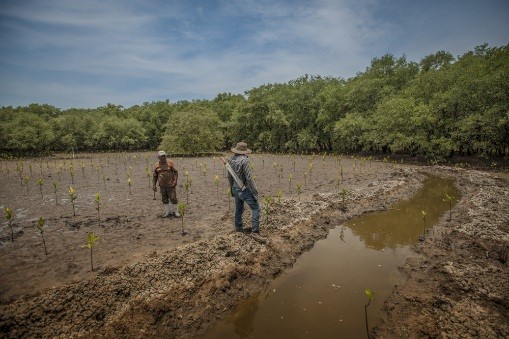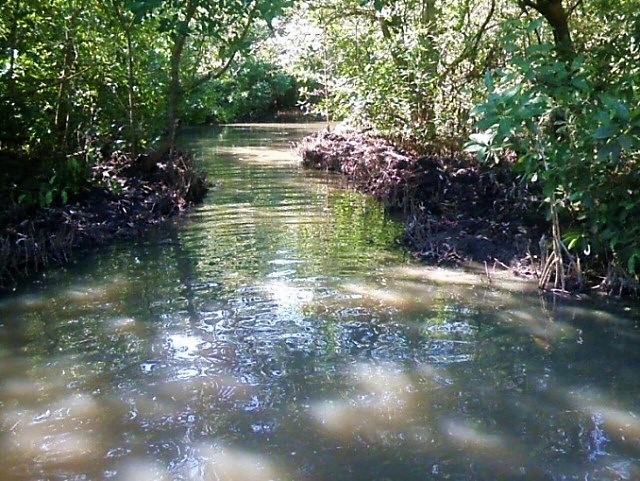


The ejido Conquista Campesina wanted to restore mangrove forests and the ecosystem services that these provide (biological diversity, water quality, protection against storms) with a view to strengthening its food security and resilience in the face of climate change.
The opening of hydrological channels was first carried out to replenish with water areas damaged by sedimentation; then the collection, translocation and sowing of propagules in the degraded areas was coordinated. Through the ‘payment of laboured days’ as restoration incentives (Payment for Environmental Services), these efforts also achieved economic benefits for the community. While the water open surface was improved in fishing areas, the community was also protecting itself against winds and storm surges in areas used for collecting, fishing and housing. In addition, family gardens (orchards), agroforestry and apiculture were implemented in some plots to diversify the products used by families for self-consumption. These processes provided important means of learning for ejido members, both men and women, who acquired technical knowledge (on mangrove restoration and managing plants in association) and a better understanding of the relationship between climate change, conservation and food security.
- Ejido Assemblies are very strong institutions within the communities of the State of Chiapas. Their authority and decisions are key to the adoption of any kind of ecosystem management measure. To have the approval of the Assembly is to have the support of the entire community.
- There is a local payment for environmental services scheme (through concurrent funds and coordinated by Pronatura Sur A.C. and CONAFOR) that supports the restoration, protection and surveillance of mangrove ecosystems (~500 ha overall).
- The possibility of accessing an economic incentive, in the form of ‘payments for laboured days’, was motivational and an effective means to achieve the restoration of 4.1 ha of mangrove forest in Conquista Campesina.
- Restoration efforts awoke the interest of ejido members in other opportunities such as the implementation of family gardens (orchards), agroforestry and beekeeping on their plots. These changes (the acquisition of new knowledge and products for self-consumption) turned out to be convincing for families, as they could reduce their dependency on fishing and the mangrove ecosystems.